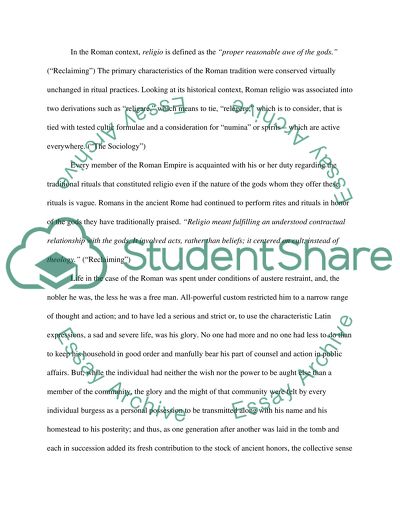Cite this document
(“Christianity in the later Roman Empire Essay Example | Topics and Well Written Essays - 1500 words”, n.d.)
Retrieved from https://studentshare.org/religion-and-theology/1511348-christianity-in-the-later-roman-empire
Retrieved from https://studentshare.org/religion-and-theology/1511348-christianity-in-the-later-roman-empire
(Christianity in the Later Roman Empire Essay Example | Topics and Well Written Essays - 1500 Words)
https://studentshare.org/religion-and-theology/1511348-christianity-in-the-later-roman-empire.
https://studentshare.org/religion-and-theology/1511348-christianity-in-the-later-roman-empire.
“Christianity in the Later Roman Empire Essay Example | Topics and Well Written Essays - 1500 Words”, n.d. https://studentshare.org/religion-and-theology/1511348-christianity-in-the-later-roman-empire.


